 |
The Department of Medical Lab Technology |
Overview
Medical Laboratory Science (MLS), also called Medical Laboratory Technology, prepares students for a career in Clinical Laboratory Science and services needed for the diagnosis, treatment, and prevention of disease. The Department of Medical Laboratory Science includes sections of Biochemistry, Hematology, Immunology, parasitology, and Microbiology. There are presently academic members and experts, who collaborate in different labs at the department.
Mission Statement
The mission of the Medical Laboratory Science Program is to prepare professionals to demonstrate the highest quality of technical and clinical competence in serving their patients and the laboratory profession.
Vision Statement
The Medical Laboratory Science Program should be one of the leading Clinical Laboratory Science programs in the country with recognition of graduates for leadership and clinical competence.
To provide quality laboratory services in a timely, accurate and efficient manner to ensure high-quality patient care and enhance patient health. To be recognized and maintain recognition as one of the lead laboratories and strive to provide the best patient care possible.
Medical Laboratory Science Program Information
Shahid Beheshti University of Medical Sciences offers a four year curriculum leading to a Bachelor of Science in Medical Laboratory Science.
Students complete four years of courses in theoretical and practical learning experiences, including General Science Education and Medical Laboratory Science. Practical learning experiences are based on the biology of humans and focus on specific areas such as Clinical Chemistry, Medical Microbiology (Virology, Bacteriology, Mycology, Parasitology), Hematology, Immunology, and Molecular Biology. Students spend most of their senior year on professional coursework, including didactic courses, student laboratory instruction / or clinical internship, and clinical experience rotations in medical laboratories in local hospitals.
MLS Department Goals
1. To meet the increasing demand for laboratory professionals in hospital and clinic laboratories, research, industry, public health, education, and laboratory management
2. To ensure that entry-level practitioners of Medical Laboratory Science are adequately trained in the following areas of Laboratory Medicine: Clinical Microbiology, Hematology, Blood Banking, Immunohematology, Parasitology, Mycology, Clinical Chemistry, Clinical Immunology, Molecular Diagnostics, Quality Control, Quality Assurance and Laboratory Management
3. To perform work efficiently and accurately under the pressure of time constraints
4. To perform quality control of patient laboratory tests and apply quality-assurance methodology to assure the accuracy of laboratory testing
5. To ensure that practitioners of medical laboratory science enter the workforce with a strong understanding of professionalism as demonstrated by their ability to work with a diverse group of individuals, participate as team members toward the overall goals of the system, and maintain competency in their field of study
6. To provide an educational, clinical laboratory rotation experience that builds upon their academic education
7. To provide instruction and evaluation based on identified competencies and content of the Medical Laboratory Science discipline
8. To provide students with adequate knowledge and background experience to qualify for certified examinations appropriate to their level of training.
Learning Outcomes
Upon successful completion of this program, students will:
Be adequately trained in performing a wide variety of laboratory tests from low to high complexity, such as Hematology, Clinical Chemistry, Parasitology. Virology, Bacteriology, Mycology, Serology/Immunology, Coagulation, Urinalysis, Molecular biology, Phlebotomy, Quality Control, Quality Assurance and laboratory management and other emerging diagnostics.
Possess basic knowledge, skills, and relevant experiences in consultative interactions with members of the healthcare team.
Lab pictures of Laboratory Sciences:




